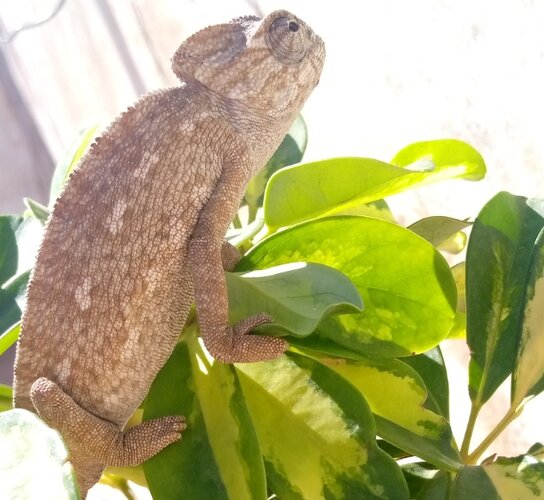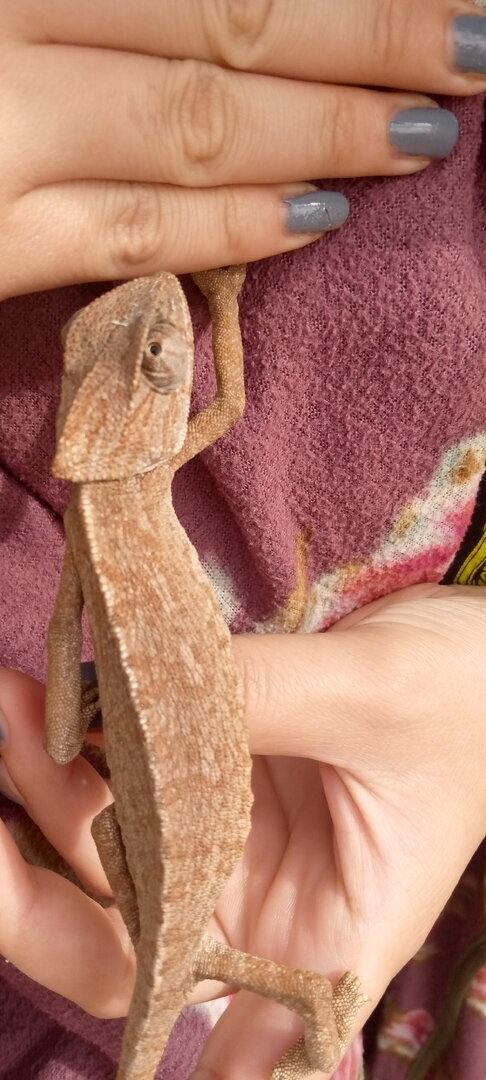Oumaema
New Member
Hello,
I have a Mediterranean chameleon, he is outside where there are plenty of shadows and can get direct sun as well, since he is in his environment i prefered to keep it natural, but these two days i noticed that he is less active, he eats well but he doesn't move as he used to, he used to explore the surrounding but now he stays on his spot the whole day or just move few inches and then he goes back, i am afraid it's a health issue or just the change of seasons and also he looks dehydrated he has a dripper but he drinks from it i guess each two, 3 days, i ve never seen him licking any drops, i mist twice once in morning and once at night.
I have a Mediterranean chameleon, he is outside where there are plenty of shadows and can get direct sun as well, since he is in his environment i prefered to keep it natural, but these two days i noticed that he is less active, he eats well but he doesn't move as he used to, he used to explore the surrounding but now he stays on his spot the whole day or just move few inches and then he goes back, i am afraid it's a health issue or just the change of seasons and also he looks dehydrated he has a dripper but he drinks from it i guess each two, 3 days, i ve never seen him licking any drops, i mist twice once in morning and once at night.







